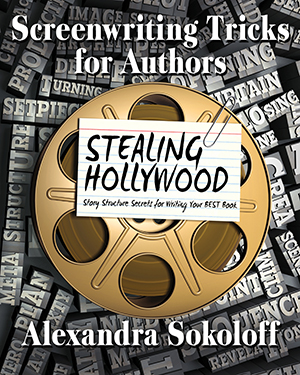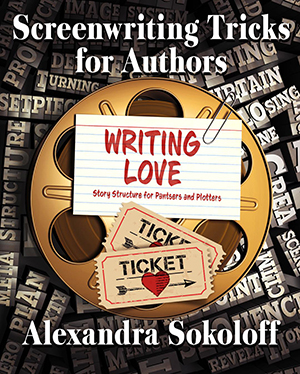Today, we’re going to embrace the business side of writing as part of the idea-finding process.
In Part I I was talking especially to the beginning writer. In the beginning, the most important thing is to find an idea that you can finish. But -If you’ve already figured out how to write a book, and in fact have written and published a few on some level, or written and optioned or sold some scripts, we also have to have a different conversation.
So today I want to address the already-published but maybe not published big enough writer.
- The author who’s published one or two or four books, but is not making a living
- Is maybe out of contract and unsure how to get back in, and freezes at the very idea of indie publishing, or starting that whole dreaded search for an agent again.
- Is a UK writer who knows they have to break into the US market to sell enough to books to make a living.
- Is an indie-published author who did okay or even fine before Amazon changed all the algorithms again but this time nothing you do seems to work.
- And everyone who is so dazed and confused and numbed from four years of madness under an insane reality show host coupled with a global pandemic that they don’t know if they will ever care about writing a book ever again.
I’ve been doing the Screenwriting Tricks for Authors workshops for (and socializing with!) writers’ organizations for many years, which means I know hundreds of writers operating at variations of this level.
(And I’d really love to hear what variation you’re experiencing!)
So how do you find an idea BIG enough to take you to that next level?
That’s a big question!
- First, understand that’s a lot easier to interest a publisher and/or an audience in a trilogy or series than a standalone.
This might seem painfully obvious to some of you— but it is constantly surprising to me how surprising this is to already multiply-published authors.
I would never say you shouldn’t write standalones. Your unique take on or combination of genres, the atmosphere of your story world, could be strong enough to make a collection of standalones FEEL like a series. But you need to get very conscious about EXACTLY what it is about your writing that uniquely unifies your standalones – in other words, your BRAND.
And that leads me to another point.
- It is also constantly surprising to me that so many authors at this level don’t understand how to use the resources they already have, which very often includes their BACKLIST.
I’m not going to launch into a how-to-indie-publish post – that would take a whole book that would be outdated before I could finish it. Sorry, I have my own books to write!
But if you’re a published author of any kind, indie or traditional, and you have backlist titles that are languishing and that you could get the rights back to, you should be spending part of your writing day doing exactly that. Get those rights back, because every book you put out promotes your new one, and builds your business.
—And for heaven’s sake, KNOW what your readers read you for!
KNOW YOUR BRAND.
We read books and see movies for the EXPERIENCE. Every genre and subgenre is promising a very particular EXPERIENCE, and your job as an author is to deliver that experience.
So instead of jumping right into stressing about How to Get a BIG IDEA (I’ll save talking about that for thennext post), I encourage you to take some quiet time today or for the next few days to really ponder and define what your readers read you for.
Here are some questions to get you started:
- What do your Amazon reviews say about your books?
- What do your superfans say they read your books over and over for?
- What images do you use on your covers, website, social media banners, etc. to convey that brand?
- What successful and beloved authors and filmmakers would you group your books with? (Make a list of at least ten.)
- What THEMES are you working with? What THEMES do you want to continue to explore, and what themes are you most drawn to working with next?
- Going deeper that genre, what SUBGENRES are you working with? (Your particular mix of subgenre goes a long, long way toward defining your brand.)
And be sure to bask in the remembering that you’ve already given so many readers such pleasure!
Doesn’t that feel good?
- Alex





